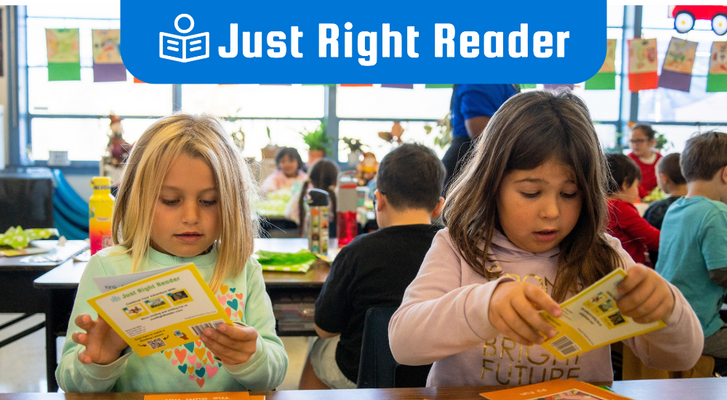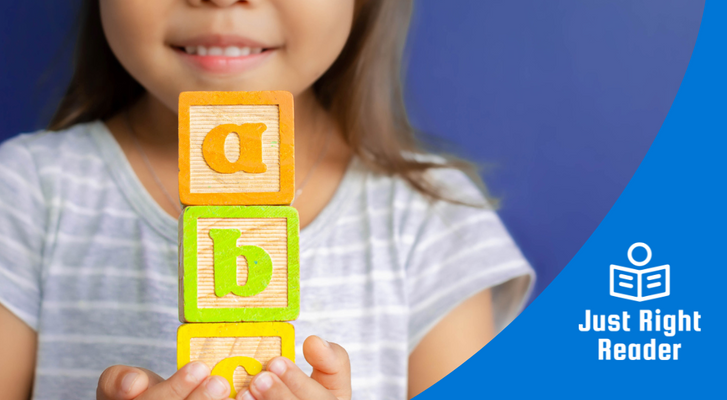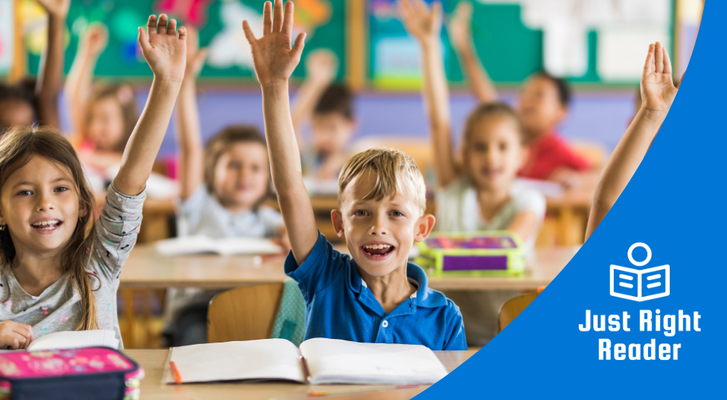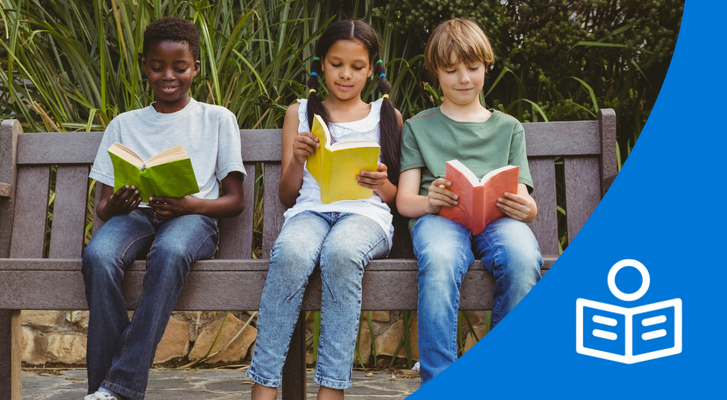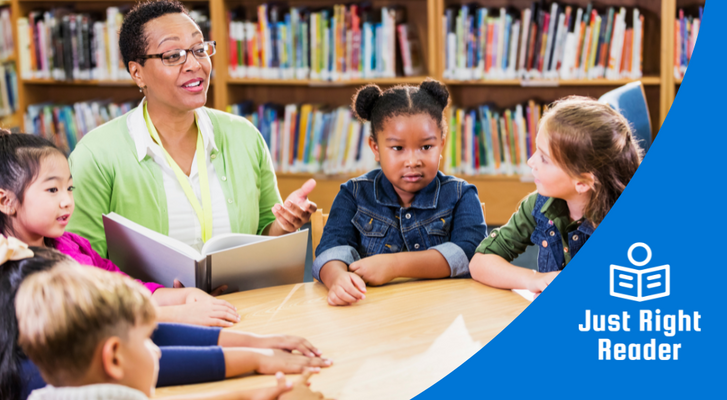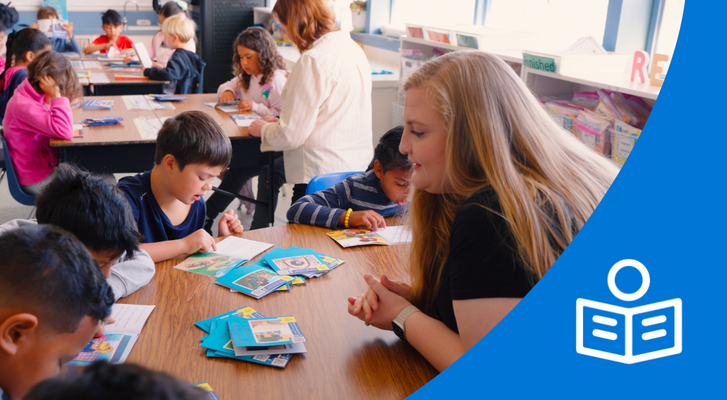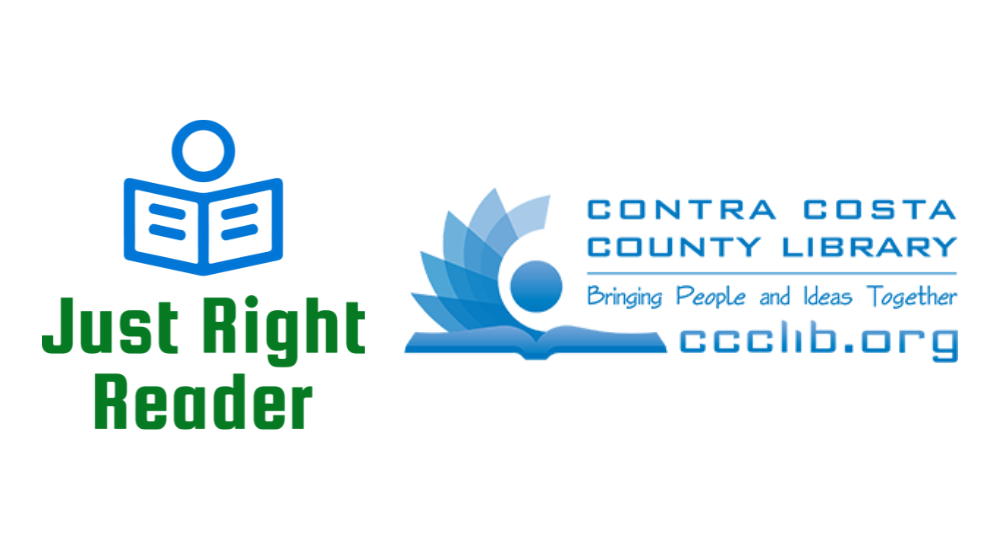
Public libraries are vital for helping children develop their reading skills. They provide free access to a wide range of books and resources, foster strong reading habits, and build a community around the love of reading.
Research emphasizes the benefits of children having access to high-quality books, particularly in terms of their reading and cognitive development.
- Regular family reading helps improve children's reading and writing abilities (Sénéchal & LeFevre, 2002).
- Having books at home is closely connected to increased vocabulary and comprehension (Schubert & Becker, 2010).
- Children with access to books from a young age tend to develop stronger critical thinking skills and cognitive abilities (Mol & Bus, 2011).
However, many libraries often do not have access to high-quality decodable books which are crucial for teaching young children how to read. Becky Nielson, Librarian II Youth Services, Pittsburg Library in Contra Costa County, aimed to change that.
Summary

After attending a presentation about how children learn to read, especially those with learning differences like dyslexia, Nielson wanted to learn what the public library could do to support literacy development in the community.
Intrigued by the studies showing that effective instructional practices for students with dyslexia also benefit most other students, she researched to determine which steps to take to ensure the library provided families with access to high-quality reading materials.
Conversations with school district leaders and guidance from a literacy expert from Project Second Chance led to the decision to include high-quality decodable books in the Pittsburg Public Library.
"The person from the school district said I need to make sure I have decodable books. I had to educate myself on what a decodable book is. I said, OK, how do we get those, and where do we start?"
Nielson and another literacy professional thoroughly evaluated several decodable book providers. Scope and sequence and family engagement components were among the most critical factors in selecting decodable books.
"The library is very independent, and people just come and check out books. You do not always get to [reach them] them to try and help. We needed to provide something that families could work through independently."
Implementation

Pittsburg Library purchased Just Right Reader's Pre-Emergent - Second-Grade Libraries to provide the community with high-quality decodable books.
Decodables are cataloged in bundles to keep kids moving through the phonics progression in the correct order. The display informs families about the importance of reading decodables and encourages them to use the QR code to reinforce phonics skills. Each Just Right Reader decodable contains a QR code linking to a memorable 2-minute phonics lesson.

Findings
- Families expressed their excitement about reading decodables.
- Pre-emergent and Kindergarten decodables are checked out most often.
Building on this success, Nielson plans to seek additional funding to expand Pittsburg Library's collection of Just Right Reader Decodables, demonstrating a commitment to supporting literacy development in the community.
Bring Just Right Reader Decodables to Your Library
Grounded in the Science of Reading research and mapped to a rigorous phonics progression, Just Right Reader Decodables provide students numerous opportunities to practice foundational reading skills in an engaging and authentic reading experience.

Our Science of Reading Decodables feature:
- 750+ titles in English and Spanish
- Engaging and relatable stories with relatable characters and vibrant illustrations that motivate students
- Evidence-based, rigorous phonics scope and sequence that aligns to all phonics programs and curriculums
- QR codes that link to memorable video lessons in English and Spanish



